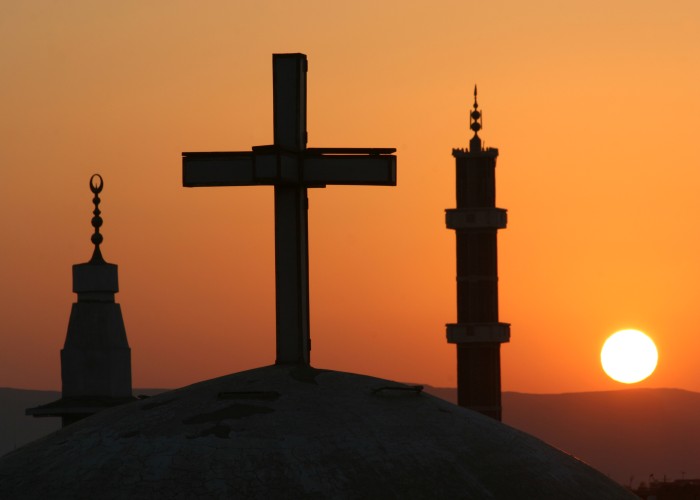Freedom of, and from, belief, religion, and spirituality under the Constitution of Kenya, 2010

Willy Mutunga highlights the limits on religious practices and observances within Kenya as failures of the 2010 Constitution as contextualized within the broader struggles taking place within the country.
For the last month, Muslims from all over the world have engaged with the spirituality of fasting. As a Muslim who has been both a Protestant and a Catholic, and who also practices the African traditional religion of the Akamba people of Kenya, I have experienced the spirituality of fasting. The values of fasting are grounded in humanity: in fasting one internalizes what it is to be poor and hungry; how to struggle against addictions and live a healthy life; that fasting is not feasting; and to comply with dictates of the Muslim faith.
All religions that I have practiced have similar values, anchored in the humanity of all human
beings. The Constitution of Kenya, 2010 has a vision of a secular state and society. Beliefs, religion, opinion, and conscience are protected. We do not have a state religion. Discrimination either by the state or by individual Kenyans against others on the basis of religion, race, sex, sexual orientation, marital status, health status, pregnancy, ethnic or social origin, conscience, belief, culture, dress, language, or birth, is unconstitutional. The Constitution also decrees values of equality, equity, inclusiveness, human dignity, non-discrimination, and protection of the marginalized.
The vision of the Constitution on religion encompasses Ubuntu/Utu/humanity. That vision emphasizes the equity and equality of all religions; where no one religion is closer to the Creator than any other; promotes tolerance, and respect for each and every religion; bans religious prejudice; encourages co-existence, the end of patriarchal and related social structures; and enhances dialogue, solidarity, patriotism, and unity of the nation. Any actions by the police, courts, and the law cannot subvert this Constitution and these ideals.
That religious values are subverted is because of human beings playing God, and their failure to live the values and ethics, the critical anchors of humanity. The ruling classes in the world include a strong faction, the theocratic or theological class that solidifies the blasphemous acts of human beings playing God. That faction also forms a great part of the superstructural features of bourgeois ideology and politics.
In Kenya, therefore, atheists, agnostics, syncretists, African traditional religionists, humanists, Buddhists, Hindus, Christians, Roman Catholics, Muslims, and all spiritualists should be equally protected under our Constitution. While Christians, Catholics, and Muslims have national days that celebrate their respective religions, others do not. This is a subversion of the aforementioned constitutional values, particularly inclusiveness, equity, equality, human dignity, and protection of the marginalized religions. It is time to put an end to this discrimination by decreeing one day or more when all these religions and spiritualities celebrate their beliefs, faiths, conscience, and opinion. Many of the Africans I have encountered while researching this issue are syncretists, but they may not admit it because of their fear of the wrath of their respective Messianic faiths. African traditional religions are the most accommodating of other religions. They do not seek to convert others as the Abrahamic religion does. No wonder few have heard of African traditional religious wars.
The Constitution of Kenya, 2010 has many sites of struggle. I wrote an earlier article in Pambazuka News on the Gen Z revolution which outlined political demands on the Constitution. This conversation on religious freedoms in Kenya is just one continuation of this struggle for social transformation by way of political demands based on the Constitution. In addition, the Struggles for a sexually liberated Kenya that is gender just, non-sexist, and non-homophobic are also being waged on the belief that the Constitution is based on the previously mentioned ideals. The LGBTIQA+ communities fighting for their rights; and the feminists fighting for their sexual and reproductive health rights all invoke these provisions of the Constitution. What is more are other movements emerging that resist the occupation of this civic space by conservative religious groups. Some of these conservative groups have allowed themselves to outsource in Africa the cultural wars between liberal and fundamentalist Christian groups in the US. As these new movements wave the flags of socialist feminism and sexuality against the status quo in the arena of spiritualities, an integration with the broad movements calling for a new and humane planet will be reinforced and enriched.
Like other sites of struggle in the Constitution, the site of spirituality identifies the links between the comprador bourgeoisie in Kenya and their masters - the imperialist bourgeoisie. These links are constantly and continuously exposed. Such are the gains we must build on and ensure they are permanent, irrevocable, and irreversible. That struggle must continue and victory has to be certain. It is either homeland or death/Patria O Muerte!
Willy Mutunga was Chief Justice & President of the Supreme Court of Kenya, 2011-2016. In his retirement, he is an Adjunct Professor in Public Law, Kabarak University Law School.

